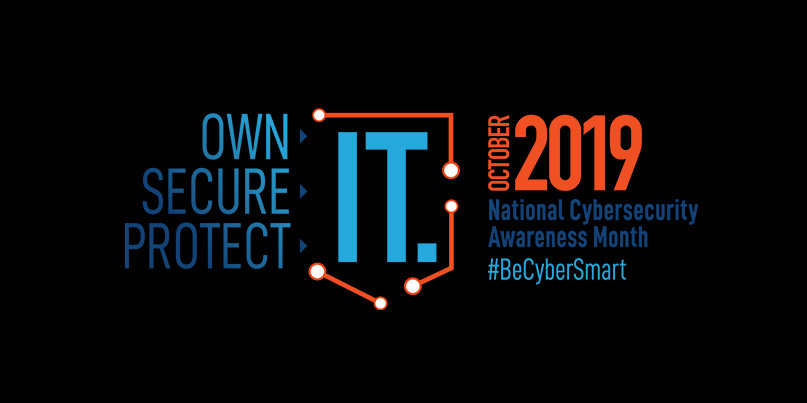Own IT. Secure IT. Protect IT.

Back in 2004, connected technology was still something of a novelty, with just 65% of Americans reporting to own a cellphone.
Soon, as we saw the birth and widespread adoption of platforms like Facebook and Amazon, the distinction between the offline and online worlds became ever more blurred.
While the benefits of this interconnectedness are undeniable, the trade-off to convenience and 24/7 cat videos has inevitably given way to questions related to safety, as criminals find opportunity to cash in on the lack of user education related to security.
For Kelvin Coleman, the recently appointed executive director of the National Cyber Security Alliance (NCSA), a US-based non-profit that operates in collaboration with the Department of Homeland Security, the challenges of keeping information safe in this digital age are ones that consumers need to be empowered to take on.
“Technology is growing exponentially, and that’s neither good nor bad – it is what it is,” he said, speaking to The Daily Swig over the phone at the start of this year’s National Cybersecurity Awareness Month – a national campaign to raise awareness of the threats mounting throughout our digital ecosystem.
“Cybersecurity is increasingly more important as we become increasingly more connected,” Coleman said.
‘It’s our Super Bowl’
Now in its 16th year, the NCSA-led National Cybersecurity Awareness Month (NCSAM) is opportunity to educate consumers, small and medium-sized enterprises, and others, on the risks they may encounter when operating online.
“It’s our Super Bowl,” Coleman said. “This year we’re really trying to target a more personal accountability aspect of being safe and secure.”
That approach has translated into the 2019 theme, ‘Own IT. Secure IT. Protect IT’ – three facets that, Coleman says, highlight how consumers can take control of their information, data, and even social media persona, with a few simple safety features.
“You can certainly think about your privacy settings on your applications and devices, who do we want our information to go out, these are things that we have talked about for years, and it may not seem like the most exciting thing in the world but it’s so important,” Coleman said.
“We know that passphrases are good, but what about an extra layer of security like a multifactor authentication to have a few extra steps that tells the account that you’re the right person,” he added.
Keeping control of your data
Approaching cybersecurity as a shared responsibility is still important, but this focus on individual responsibility may be due to a jump in cybercrime reporting – a $2.7 billion industry in the US in just 2018 – and indeed the ongoing calls for a federal privacy legislation stateside.
Strong passwords and avoiding passing sensitive information over public WiFi may not be the most exciting thing to drill into the heads of consumers, but every bit helps.
“I want to arm them with the ability to control that information, control that data, and there are ways to do that,” Coleman said.
“That’s what this month is for: reminding people to remain diligent.
“And hopefully it resonates throughout the year,” he added.
Over 2,000 organizations have signed up to participate in NCSAM, running their own campaigns and activities through information via NCSA.
Alongside teaching safety online, NCSAM is also an opportunity to discuss the cyber skills gap. A 2018 report from industry group (ISC)2 suggests there are nearly 500,00 security jobs unfilled in North America alone.
“This month is also about increasing the recognition that there is a gap,” Coleman said.
“There is a [skills] shortage, and everything that we can do to help fill that gap, to talk about the opportunities and careers in this area, I think the better it will bode for the future.”
National Cybersecurity Awareness Month runs throughout the month of October. Visit the NCSAM website for more information and to locate events in your area.
YOU MAY ALSO LIKE Cybersecurity month 2019: Citizens of Belgium urged to report phishing emails






